Foreclosed buildings near airport could house Center of Government… but probably won’t.
Reporting and Analysis by Robert Lynch; June 27, 2025
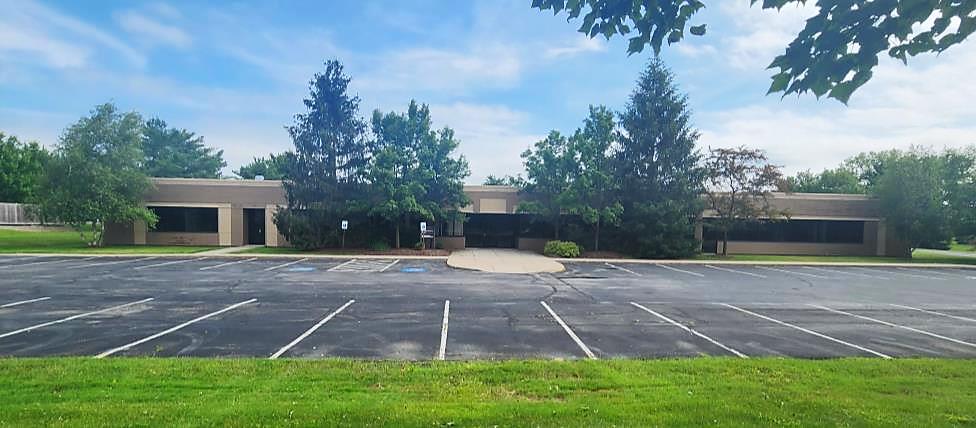
“[It’s] a high-risk and potentially more expensive alternative.”
Tompkins County Administrator Korsah Akumfi; May 19
“It just feels different than downtown… There’s room to breathe. Compare that to being crammed all-too-tightly into a four-story, downtown box.”
This writer; just now
View it, if you will, as an opportunity too good to pass up. That said, Tompkins County will likely toss it aside.
A cluster of office buildings near Tompkins County Airport, modern, low-rise structures comprising what one expert calls the largest real estate foreclosure in Ithaca history, fleetingly grabbed attention from Tompkins County leaders this spring as an alternative to building a $50 Million Center of Government in Downtown Ithaca, newly-released documents reveal.
But after a quiet, shrouded review, officials recommended lawmakers give the option a pass.
In his previously-undisclosed May 19 memorandum to local legislators and key personnel, Tompkins County Administrator Korsah Akumfi reported that his office’s officials had talked with banking representatives about buying the multi-building, airport-adjacent complex. Akumfi made public his three-page memo June 25 after a Tompkins County legislator had alluded to the acquisition inquiry during a public meeting the night before.

Tompkins Community Bank, which had foreclosed on a private developer holding ground leases for the properties, had offered to sell County Government all of the 18 foreclosed buildings for an eight-figure amount.
“The bank is seeking to sell all 18 properties in a single sale, at an estimated cost of approximately $55 million,” Akumfi advised legislators. “The land acquisition is unclear at this point,” the County Administrator reported.
Cornell University owns the ground on which the buildings sit. The land forms part of the Cornell Business Park, located along Brown Road, Thornwood Drive, Brentwood Drive, and Arrowwood Drive in the Town of Lansing.
Ultimately, however, after performing a cost and feasibility study, Akumfi recommended against the building purchases, either collectively or a la carte.
“While the Cornell Business Park option presents intriguing elements, current occupancy levels, acquisition costs, lack of long-term control over the land (ground lease), uncertain rehabilitation requirements of 2-3 buildings, and potential operational disruptions make it a high-risk and potentially more expensive alternative,” Akumfi concluded. Instead, the administrator steered lawmakers back to their original plans to build the Center of Government in downtown Ithaca.
“The downtown Center of Government project remains a viable, strategically sound, and carefully planned investment in the future of Tompkins County,” Akumfi counseled.
Korsah Akumfi, Tompkins County’s Administrator since only January, has since his hiring become vocal and impatient about moving ahead with the downtown project. He’d prepared the downtown-versus-Business Park comparison, in part, to prod legislators to act. Lawmakers followed the administrator’s advice earlier this month and provided the Courthouse-adjacent building site a heightened commitment.
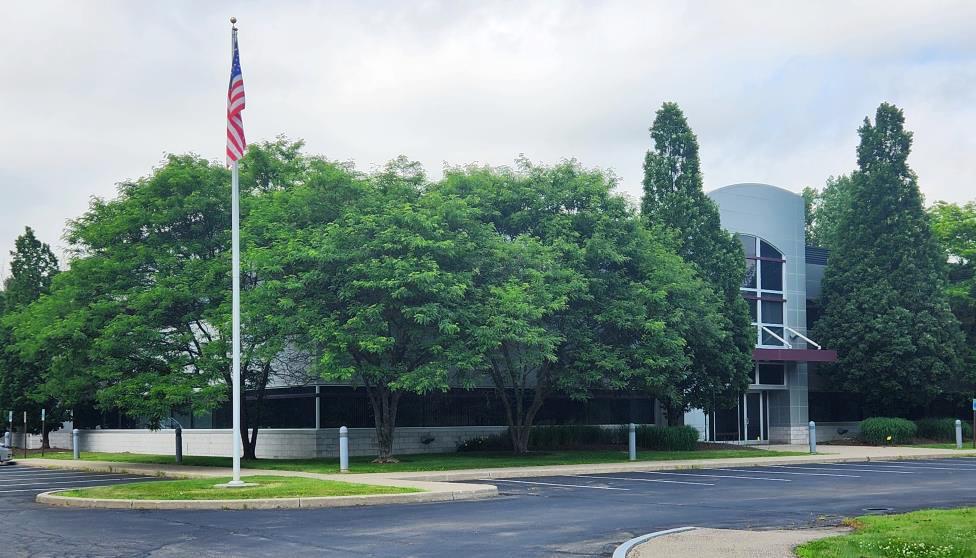
By a nine-to-four vote June third, the Legislature adopted a resolution that “approves funding up to $50 Million… for the development of the Center of Government.” The resolution further directs that the office building is “to be located on the 300 block of North Tioga Street,” downtown.
Never during any discussions prior to the early-June decision did administrators or legislators publicly reference the Cornell Business Park’s properties or their availability. Should Administrator Akumfi’s analysis have received legislative attention, the discussions would have occurred in closed session.
In the opinions of some, the Legislature’s vote June third firmly commits Tompkins County to build the Center of Government downtown, and that there’s no turning back. On the other hand, Newfield-Enfield legislator Randy Brown, chair of a special committee that’ll oversee the construction, advised the Enfield Town Board June 11 that in his view the Legislature’s decision is not “irreversible.”
No one might have learned that Tompkins County had seriously—albeit briefly—searched for an alternative Center of Government site had not Lansing legislator Mike Sigler referenced it during an otherwise-uneventful Community Engagement meeting Tuesday, June 24. Tuesday’s was the final of five governmentally-sponsored sessions convened about the county to explain the Center of Government project and to take public comment concerning the building’s potential design and downtown desirability.
“We looked at other locations as recently as, I think, two months ago,” Sigler advised attendees Tuesday, referencing in only vague terms an inquiry that had never before been stated publicly.
“There was a big foreclosure up at the airport,” the Lansing legislator stated.
“There were a bunch of buildings that are coming up for sale,” Sigler continued. “Korsah did what I felt was a pretty in-depth investigation of how—if we could do that. We already have a footprint up there, so it does make a lot of sense. We have the Health Department up there.”
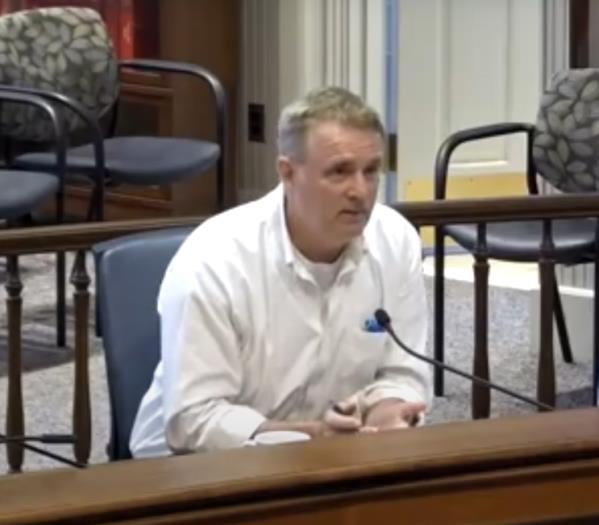
But then, Sigler conceded, opportunity yielded to (presumed) financial reality.
“But when he ran through the numbers,” Sigler said of Akumfi’s analysis, “the numbers, they were what they were, and they were relatively close to what this building seems to be costing us downtown.”
The cost of a Downtown Ithaca Center of Government has become a nagging irritant; a source of public concern, if not derision. The longer the project’s been considered, the steeper its price has climbed.
In some way, shape or form, a Center of Government, a common structure to house under one roof as many of Tompkins County’s widely-scattered departments as possible, has incubated in legislative minds for two decades or more. When the concept gained new life in 2018-19, the center’s construction was priced at about $20 Million. As that momentum has grown this decade, the cost estimates have climbed as well; first to $32 Million, then to $40 Million, and just recently to $50 Million.
“I’ve heard estimates for a Center of Government building between 45 Million up to 70, and that just seems like… entirely too much money to pay when you have buildings you can use as they are now,” Zach Winn, a former Ithaca mayoral candidate and current Republican candidate for Ithaca Common Council, told Tuesday’s Community Engagement meeting.
When Winn referred to “buildings you can use as they are now,” one presumes he referred to those Tompkins County already occupies, not those clustered near the airport that government might later buy.
“Is this really the best use of like $50 Million?” Winn further asked about the planned downtown investment. “There’s commercial property all over the place.”
Surprising as it may seem, the mammoth foreclosure on what amounts to an entire office park near the airport has found a knack for evading media scrutiny this spring.

“I believe this is the largest real estate foreclosure in Ithaca’s history,” Costa Lambrou, general manager of Ithaca-based Lambrou Real Estate, told The Cornell Daily Sun in April.
Indeed, the Cornell student newspaper’s April 16 story was one of the few reports to document the mammoth bank foreclosure that’s thrust the Cornell Business Park properties onto the market.
The foreclosure impacts only the privately-owned buildings atop the university-owned land, not the land itself. The defaulting developer holds long-term ground leases.
According to the Cornell Sun’s report—confirmed by court records—Tompkins Community Bank initiated a foreclosure action in January 2024 against a group of limited liability companies associated with private developer Phil Proujansky.
According to the paper’s report, Tompkins Bank’s law firm, Harris Beach Murtha Cullina, stated that the bank initiated foreclosure after “the borrowers, real estate LLCs linked to Proujansky defaulted on a $68 million mortgage by failing to make payments since September 2023.”
A marketing and communications manager for Tompkins Community Bank declined further comment to the Cornell Daily Sun in April regarding the foreclosures.
With the bank apparently having taken control of Proujansky’s building assets at the April 29 foreclosure auction—no further documents are on file with the Tompkins County Clerk—Korsah Akumfi in his May 19 memo stated that his office had held “recent discussions” with “representatives of the bank holding bonds tied to the Cornell Business Park.”
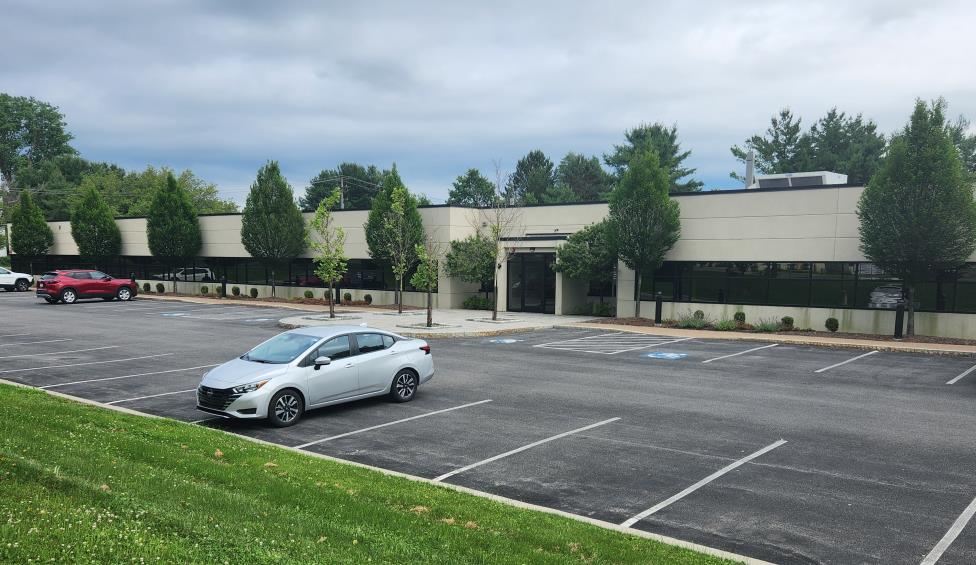
During those private discussions, Akumfi said he’d learned that among the 18 involved properties (some court records list the number as 17), 80 percent are currently occupied. One building, a sprawling one-story structure at 33 Thornwood Drive (pictured above), is fully vacant, the memo stated.
“The bank has expressed a willingness to sell the buildings individually,” the County Administrator’s memo reported. ‘[H]owever, the County would need to either share space and assume the role of landlord for the existing tenants or negotiate their relocation,” he cautioned
As for the renovation expense to adapt the Proujansky structures to County use, “Rehabilitation costs are currently unquantified, presenting significant unknowns in terms of required investment,” the Administrator qualified.
Although some may cite it as a “worst case” example, Administrator Akumfi drew upon Tompkins County’s history with its Health Department Building—also resting atop Cornell-owned land within the Business Park—to caution of financial pitfalls that could lie ahead.
Tompkins County had purchased the Health Department building for Three Million dollars, negotiated a 100-year ground lease with the University, but then had to pump $10 Million more into renovations to make the property suitable, the Administrator stated.
“These factors raise concerns about the feasibility, timeline, cost certainty, and operational impacts of relocating or expanding into Cornell Business Park,” Akumfi concluded.
The Administrator’s side-by side comparison of costs-versus benefits gave downtown siting the benefit of the doubt, as Akumfi saw it. Nonetheless, the analysis, viewed critically, stretched objectivity at times.
Akumfi contrasted a Downtown Center of Government’s projected construction cost ($42-50 Million) with the $55 Million Tompkins Bank is asking for all of its the foreclosed buildings, not just the few that County Government may need.
A Downtown Center of Government would provide 48,000 square feet of space for departments. The 18 Business Park buildings would offer an area far greater. And five of the bank’s 18 structures, those on Brentwood and Arrowwood Drives, are separated far from the rest. They’re on the opposite side of Route 13. Many lease to medical providers.
The comparison skews other realities. The administrator identifies downtown’s timeline as “Ready to Proceed,” but warns that occupancy of buildings in the business park would be “delayed by tenant relocation and negotiation.” The latter observation stands true. But the comparison also ignores the fact that three existing structures on the downtown site will need to be razed, “deconstructed” before any new building can break ground..
A final criterion applied by the Administrator describes a new building downtown as in “complete alignment” with Tompkins County goals, whereas any repurposed facilities would achieve only “partial alignment.” How administrators reached their subjective conclusion the memo fails to explain.
But nowhere does the administrator’s memo address what stands as the Business Park’s prime attribute; its supply of ample, free parking spaces for both employees and visitors.
Parking spaces downtown are scarce. And feeding Ithaca’s parking machines costs money. A downtown-sited Center of Government may in the future—like Tompkins County’ downtown offices have in the recent past—require employees to pay to park most of the workday, presuming, that is, they can find a parking space. Visitor parking could become an even greater challenge.
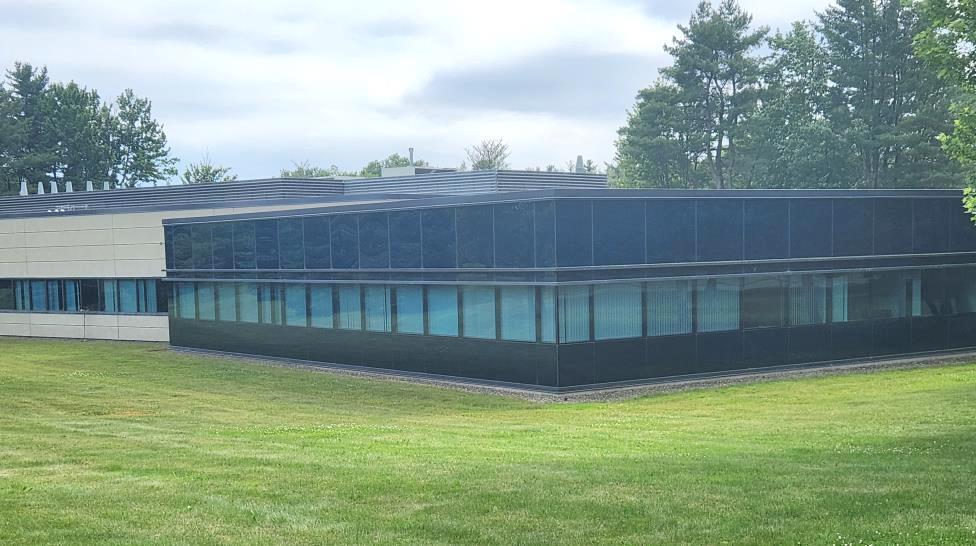
Public commenters at this month’s Community Engagement meetings have repeatedly raised the parking issue. Project consultants have so far lamely attempted to blunt that criticism with their excuse that a parking study remains underway, but is not yet done.
More importantly, however, Akumfi’s side-by-side comparison ignores a subjective criterion that may override all others. You may not be able to grasp the difference unless you actually drive and walk the Cornell Business Park (as this writer did). It just feels different than downtown. There are trees. There is grass. There’s open space. There’s room to roam freely within a modern, well-manicured office campus. There’s room to breathe. Compare that to being crammed all-too-tightly into a four-story, downtown box.
Thinking expansively—and creatively—Administrator Korsah Akumfi and the Tompkins County Legislature could make their campus-like, open-air Center of Government in Lansing the envy of leaders in many other places.
“I’ve also heard from some of our staff,” Shawna Black, County legislator, told the engagement session. “They believe that we’re building this building too small, and that we’re already outgrowing the 40,000 square feet that you guys (the architects) are proposing.”
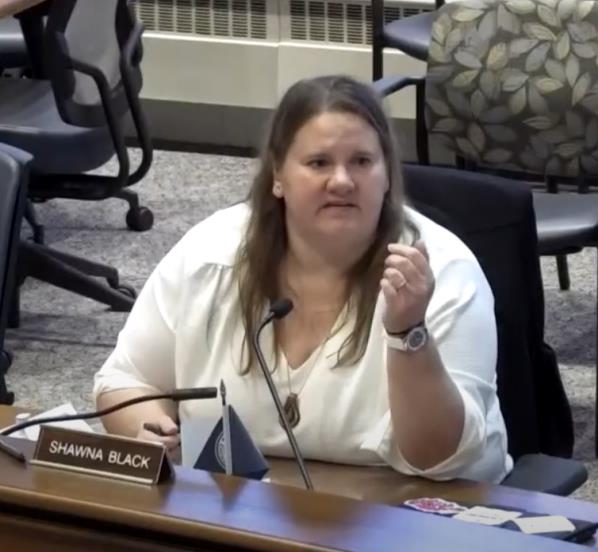
Legislator Black was among the nine lawmakers who’d backed proceeding with the Center of Government June third and keeping it downtown. She raised a second warning flag about the downtown location this more recent Tuesday night. It addressed that parking question:
“If we don’t have places for our own employees to park, for people that are going to visit us to come and park, then I’m not sure I would actually be in favor of this project,” Black warned, thereby qualifying her previously-made downtown choice. Black’s newfound caution underscores the fragility any legislative commitment to downtown may hold.
Nevertheless, even to Mike Sigler, the inevitability of a Downtown Center of Government appears to have sunk in, even though he’d declined to lend his vote to the project just three weeks earlier.
“We have a Legislature of 14 people,” Sigler reminded those at the June 24 Engagement Session. “Whether I agree that it should be downtown or not is not irrelevant,” he said. “But the votes are that most people want to see this downtown.”
“I would really like us all to just be committed to the downtown location because I think we already voted on that,” legislator Veronica Pillar, an Ithaca City resident, said with a degree of impatience. “It’s a little late to stop that train.”
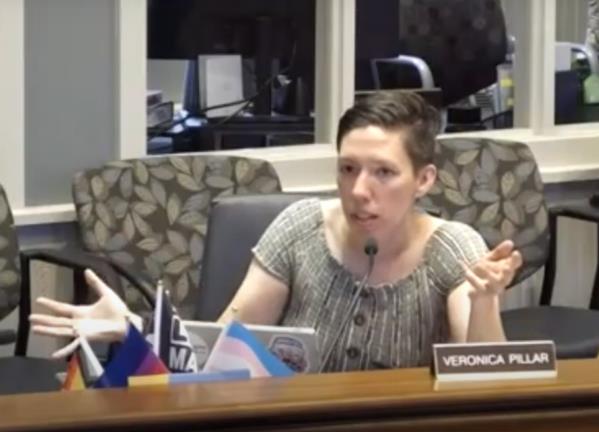
Administrator Akumfi thinks the way Dr. Pillar does.
“It is important to note that continued indecision incurs cost, diverts staff capacity, and delays necessary improvements in government services and infrastructure,” Korsah Akumfi wrote in his May 19 memo.
“I’m pleased that we’re moving ahead,” Dryden’s Mike Lane, a big supporter of the Center of Government and its planned downtown footprint, said as the engagement session wound to a close. Lane related tales from a century earlier about how Tompkins County’s Main Courthouse got built.
“There’s probably no good time to spend $50 Million at the county level,” Lane conceded. “But I think when they look back in the future, they’re going to be glad that we built the building because it will be a building that’s going to be there for 100 years, or more, and it’s going to service the people of the whole county.”
Public turnout for Tompkins County’s five Community Engagement sessions to discuss and dissect the Center of Government has not been great. Community attendees at each meeting numbered only in the handful. Tuesday’s session in Legislative Chambers ran just 52 minutes, whereas an hour and a half had been set aside. Tompkins County’s Communications Director pleaded for comments that often never came. The June 24th forum drew only four spectators, this Enfield Councilperson included. Among the public, only Zach Winn and I chose to speak.
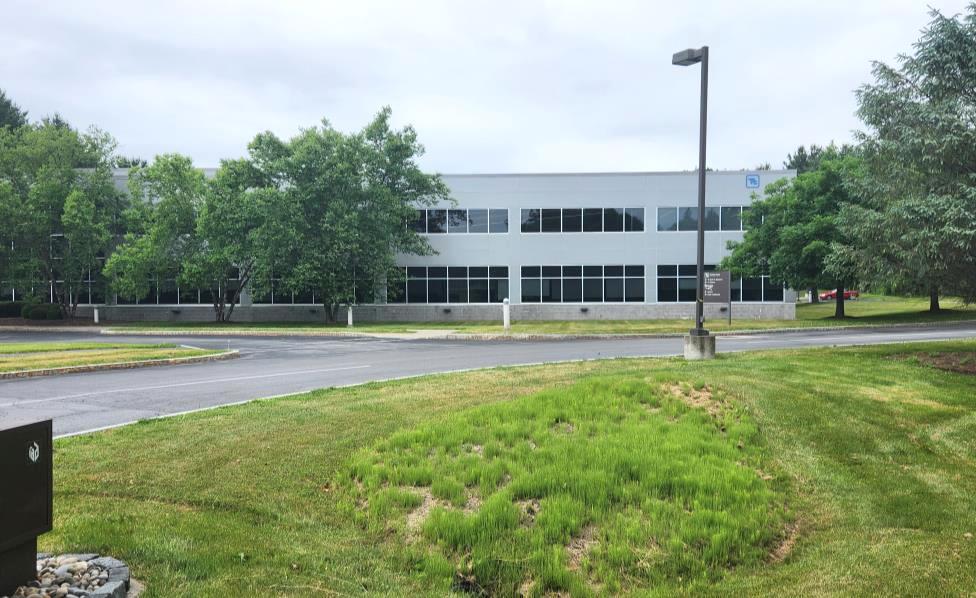
“There are people who do not find downtown very inviting,” Winn warned legislators. “And I think that is a justified perspective,” he observed.
“We’ve got to realize there are options still on the table, and I would like to see those options pursued,” this writer advised the dozen or so elected and appointed officials who’d assembled that night to hear what the public had to say.
Just three minutes later Mike Sigler would reveal what some may call the “Thornwood Option,” the once-considered fallback alternative pondered by leaders in recent weeks, but only in the shadows. After Sigler spoke, how much more meaningful—albeit, unknowingly on point—this speaker’s earlier admonition had suddenly become.
###

